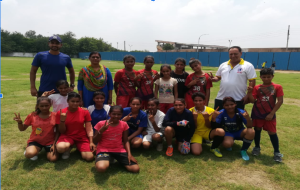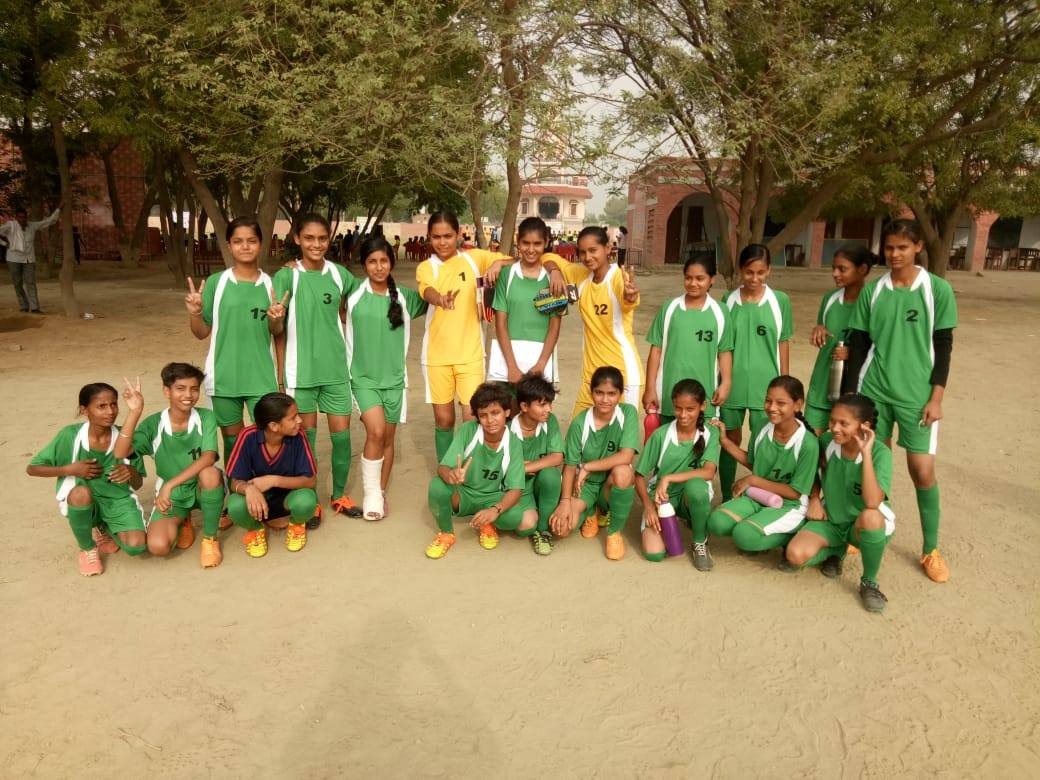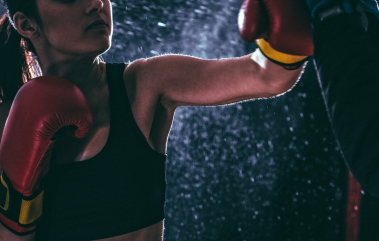The penalty kick that you see in this video was hit by one of the girls belonging to the Art of Play program. Art of Play Foundation was an organisation that I worked with a few years back. We worked towards building a grade-specific physical education curriculum for government schools. It was the semi-finals of the School Games Federation of India Cup; the goal was crucial for the team to win, and the girl delivered under tremendous pressure. Her team eventually went on to win the cup and became the first girls’ team in decades to win the SGFI cup recently for any Government School in Faridabad.
Video Courtesy- Art of Play Foundation – https://youtu.be/ZcxrP75_-ZU
As an athlete and a professional working towards changing the dynamics of sports at the grassroots level, I wanted to take a deep dive into this goal.

Photo courtesy- Art of Play Foundation
What does a football goal really mean for a young girl from Faridabad? What about the goals we set for young girls playing a sport in India?
As adults, we are always setting goals for ourselves. Sometimes, we achieve them, and other times, we fail. We have the luxury of time to strategize and plan towards our goals. We set short-term and long-term goals and can prioritize them. Our goals are generally selfish, catering to OUR growth and development, and, most importantly, to OUR happiness.
The meaning of such a goal in a team sport like football is completely different. The girl in this video is securing (and accomplishing) a goal for her team, which is different from the goals we adults set. A goal on a football field is something that has to be accomplished in a matter of seconds. The strategizing and planning for it happen in those couple of seconds. Even if you have practised hitting penalty kicks a thousand times, results are not assured. At that moment, the girl has to depend on her skills, her luck, her precision, her stable mind and also bet against the goalkeeper.
When she eventually secures that goal, a plethora of wisdom gets unlocked. She learns that scoring (and accomplishing) the goal is not really an individual act; in fact, it is quite the opposite. The hard work, the strategy, the discipline and, more importantly, the faith shown in her by her team presented her with the opportunity to hit this penalty kick and help not just her, but her team win. Granted that the hours of practice she put in helped, but without her team, she realizes she is nothing.
Amongst other things, she also learns that just like she became her team’s hero, the goalkeeper of the other team didn’t. She accomplished her goal, and that meant someone else didn’t. So, when she shakes hands with the goalkeeper, she empathizes with her. She realizes that she, too, must have worked equally hard, but today wasn’t her day. Tomorrow, it could be her on the other side. And that is why she subscribes to the girl comes from the hinterlands of India, a village in Faridabad. So, for her, this goal changes her self-perception as well as the way others perceive her. The boys in her class who are watching her play suddenly realize that she can hit a penalty kick with the same precision as they can. The boys realised that it was the girls who reached the finals, while they couldn’t. It suddenly opens their school’s eyes towards the possibilities that exist for these girls beyond the classroom. More importantly, it empowers the team as a whole.
For the girl herself, she defies the boundaries of her own body and her assessment of it. After that gruelling hour of play, when she wants to give up, though she pushes her body to focus and concentrate and hits that amazing penalty kick. She feels liberated because, at that moment, it breaks the shackles that society has locked her in. Be it confined to the kitchen, focusing on studies, wearing certain kinds of clothes, being less athletic than boys, and so on and so forth.
The problem really, I fear, is that even when a goal in sport could contribute so much towards a child’s learning, after a day of celebration, the whole thing might be forgotten. In my experience as a student and now as a professional working in this field, I know that parents equate school with only studies and not sports. Schools are institutions that exist to develop the mind and not the body. So when a child comes home from school, 9 out of 10 times, the question from parents is, “What did you study today?”. I have rarely seen or heard parents ask, “What did you play today?”
I truly believe that the parents and the school share a two-way relationship. As the school demands certain things from the parents, it also has to react to their demands and needs. A small example could be the parent-teacher meetings held regularly in schools. The parents are always keen to meet the class teachers or the subject teachers to understand how well their kid is doing. A physical education teacher, on the contrary, has little role to play because neither the parents want to know how well a child is developing physically, nor is the school interested in tracking that dimension of learning.
The goal, as set by parents and the education system for their children from an entity called school, is a well-educated mind, never a well-educated body. This, I now understand, is the fundamental problem. As adults, we have done injustice to children (especially girls) when we deny them their right to work as hard on understanding and developing their bodies. What we forget is that who we are and what we can become is not achieved by the mind alone but by a combination of a well-educated mind and a well-educated body.
After spending some time working at the grassroots, I have learnt that while it is important to create as many opportunities for children to hit as many penalty kicks as possible, my goal should also be to start a conversation with the adults on – “What is the importance of a well-educated body?”. Fortunately, or unfortunately, they are the ones setting the goals for these children.
-Written by Aditi Mutatkar she heads the athlete and women initiative at simply sport Foundation




